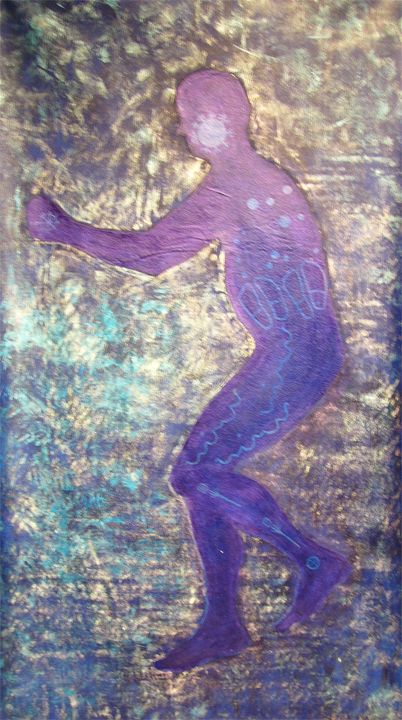Spring 2026
Section 4239 of PSYC7
Theories of Personality -- : Mar 23 - May 15 2026
This is a late start, short term section that will meet in person at the day(s), time(s), and location listed. There will be additional course content delivered asynchronously online.
Section 4598 of PSYCC1000
Introduction to Psychology -- : Mar 23 - May 15 2026
This is a late start, short term section that will meet in person at the day(s), time(s), and location listed. There will be additional course content delivered asynchronously online.
Section 4849 of PSYC5
Abnormal Psychology -- : Jan 12 - May 15 2026
This section has no scheduled meetings.
Section 5338 of PSYCC1000
Introduction to Psychology -- : Jan 12 - May 15 2026
This section has no scheduled meetings.
Section 5601 of PSYC5
Abnormal Psychology -- : Jan 12 - May 15 2026
This section has no scheduled meetings.
Section 5804 of PSYC7
Theories of Personality -- : Jan 12 - Apr 26 2026
This is a regular start, short term section that has no scheduled meetings.
Section 7379 of PSYC40
Introduction to Psychology of Gender -- : Jan 12 - May 15 2026
This section has no scheduled meetings.
Fall 2025
Section 0184 of PSYCC1000
Introduction to Psychology -- : Aug 18 - Dec 12 2025
This section has no scheduled meetings.
Section 0794 of PSYCC1000
Introduction to Psychology -- : Oct 20 - Dec 12 2025
This is a late start, short term section that will meet in person at the day(s), time(s), and location listed. There will be additional course content delivered asynchronously online.
Section 1791 of PSYC5
Abnormal Psychology -- : Aug 18 - Dec 12 2025
This section has no scheduled meetings.
Section 1836 of PSYCC1000
Introduction to Psychology -- : Sep 08 - Dec 12 2025
This is a late start section that has no scheduled meetings.
Section 1932 of PSYC5
Abnormal Psychology -- : Aug 18 - Dec 12 2025
This section has no scheduled meetings.
Section 2383 of PSYC15
Introduction to Psychology of Consciousness -- : Oct 24 - Dec 12 2025
This is a late start, short term section that will meet in person at the day(s), time(s), and location listed. There will be additional course content delivered asynchronously online.
Section 3082 of PSYCC1000
Introduction to Psychology -- : Aug 18 - Oct 12 2025
This is a regular start, short term section that has no scheduled meetings.
Summer 2025
Section 8445 of PSYC5
Abnormal Psychology -- : Jun 16 - Jul 27 2025
This section has no scheduled meetings.
Section 8581 of PSYC5
Abnormal Psychology -- : Jun 16 - Jul 27 2025
This section has no scheduled meetings.
Section 9134 of PSYC1A
General Psychology -- : Jun 16 - Jul 27 2025
This section has no scheduled meetings.
PLEASE NOTE REGARDING MY ONLINE CLASSES:
All my online classes are entirely asynchronous, no set class meetings, no set times for class meetings.
Office Hours [Zoom office visits only]
By appointment. Office hour will be held via zoom link once you sign up for office hour.
Special Lecture: Wednesdays 6-7:30pm - Dates for Special Lectures are listed at the bottom of your Canvas page. Link for Special Lecture with topic announcement will be distributed on the day of the lecture. Special Lectures are optional, they are available for extra credit. No Special Lecture during Summer Semester.
No on-campus office hour.
How to add to my classes:
For add codes please contact me via email. I will respond once a seat is available, this may be quickly or it may take a while. If you are wait listed for one of my online classes then you will be in. No need to request an add code in that case.
To add one of my on-campus class you need to show up in person in class or come to my office hour. The availability of seats will determine whether I'll be able to add you. Show up early for class, show up very early in the semester.
For my particular interests in psychology see under the bio and info tabs. Below also find two YouTube links for videos of conversations about topics that matter to me.
Class pages are available on the first day of class.
HOW TO ACCESS CANVAS:
--- Go to www.santarosa.edu
--- Click on "Online Learning" (under "Portals" in the middle of the page)
--- Scroll down and click on "Canvas Login"
--- Use the same username and password you use to enter the Portal (My Cubby) to log in.
--- Under "Navigation" on the left you should see a tab that says "Courses".
--- Clicking on that will list all the courses you're currently enrolled in.
--- Find our course and click on it. Sometimes 2 clicks are required. Wait and click again if nothing happens upon first click. All necessary course information and materials can be found there.
Special Lectures Fall 2025
Wednesdays 6 - 7:30pm on the following dates:
8/27
9/17, 9/24
10/8, 10/15, 10/22, 10/29
11/12, 11/19
12/3
Topics are announced on Wednesdays.
Join Zoom Meeting
https://santarosa-edu.zoom.us/j/85466457217
Meeting ID: 854 6645 7217
Required Textbooks Spring 2026
Please note that I cannot attest to the usefulness of earlier editions of any of my required texts. You will need to figure this out yourself. The easiest way to do so is to either compare with the most current edition on reserve in the library or the edition for sale in the SRJC bookstore. Please do the research yourself. Thank you.
A number of the books listed below are also available as ebook (Kindle and otherwise).
PSYCH 1A in-class, hybrid and online:
Jürgen Werner Kremer, Diversity in Psychology, Psychology in Diversity - Psychology for the 21st Century. Kendall-Hunt, 2017. Best price: Buy it on the publisher website (significantly cheaper than anywhere else!). Instant delivery. You must have an access code with your purchase. DO NOT BUY A USED COPY (used copies and rental copies do not contain the access code that you absolutely need). The SRJC bookstore may or may not have the electronic textbook available.
PSYCH 5 in-class and online
Jürgen Werner Kremer, Abnormal Psychology - Understanding the Complexities of Psychological Suffering. Kendall-Hunt, 2020. ISBN 97815249. Best price: Publisher website, see below. You must have an access code with your purchase. DO NOT BUY A USED COPY (used copies and rental copies do not contain the access code that you absolutely need).
Order here:
https://he.kendallhunt.com/product/abnormal-psychology-understanding-complexities-psychological-suffering (instant electronic delivery)
Ethan Watters: Crazy Like Us. New York: Free Press. (2010). [Use of used copy fine.] ISBN 978-1-4165-8708-8 or ISBN 978-1-4165-8719-4 (ebook)
Leslie Marmon Silko, Ceremony (Penguin, use 2006 edition ONLY, blue feather cover) ISBN 0143104918 [Use of used copy of 2006 edition fine.] Also available as audiobook, but best to use audiobook together with print edition.
Psych 7 online & compressed hybrid:
Robert Frager & James Fadiman, Personality and Personal Growth. Seventh Edition (7th Edition only!). ISBN 978-0-205-94025-7 [used copies and ebook of Seventh Edition fine]
Carl Gustav Jung, Memories, Dreams, Reflections. ISBN 0-679-72395-1 [used copies okay], also available as audiobook, best used together with print edition
Leanne Betasamosake Simpson: Noopiming - The Cure for White Ladies. ISBN 978-1517911263 [used copies fine; audiobook in addition to print copy highly recommended]
Psych 40 online Introduction to Psychology of Gender
Cordelia Fine, 2010, Delusions of Gender, W. W. Norton (any format fine, used copies fine)
Diana K. Ivy, 2023, GenderSpeak, Kendall Hunt (print, ebook, used - all fine)
Psych 15 Hybrid (taught Fall Semesters only):
Annaka Harris, Conscious, Harper, 2019; 978-0-06-290671-7 (cloth), now available as paperback, used copies fine
Michael S. Gazzaniga, The Consciousness Instinct, 2018. Farrar Straus & Girous (any edition okay)
PSYCH 35 online (usually taught Spring Semesters only):
Leslie Marmon Silko, Ceremony(Penguin, use 2006 edition ONLY, blue feather cover) ISBN 0143104918 [Use of used copy of 2006 edition fine.]
Shailja Patel, Migritude, (Kaya Press, 2010) [Use of used copy of 2010 edition fine.]
James Baldwin, I am not Your Negro, Vintage International, 2017.[Use of used copy of 2017 edition fine.]
Jurgen Werner Kremer & River Jackson-Paton, Ethnoautobiography - Stories and Practices for Unlearning Whiteness, Decolonization, Uncovering Ethnicities (2nd edition, Kendall-Hunt, 2014) ISBN 978-1-5249-6698-0 (https://he.kendallhunt.com/product/ethnoautobiography). Also available as ebook. This textbook is on reserve in both SRJC libraries. It is also available in the SSU library.
PSYCH 1B in-class, hybrid and online (presently not scheduled):
Please note: 2nd hand copy of the Fourth edition are fine. You do not need any of the adjunct materials the publisher offers. Do not purchase older editions.
https://wwnorton.com/books/9780393893724
IMPORTANT NOTICE FOR ONLINE CLASSES:
None of my online classes have any on-campus requirement (initial meeting) - NONE, NEVER. Disregard any printed notices that tell you otherwise. (Hybrid classes, naturally, have an on-campus requirement.) Special Lectures on Wednesday evenings are entirely optional (with extra credit available).
IMPORTANT NOTICE FOR ON-CAMPUS CLASSES:
All my on-campus classes have REQUIRED web components. All important information will be communicated via webpage or e-mail and all exams will be taken online. The classroom will provide training for using the required web component - so, not to worry. However, if you do not feel comfortable using the computer or our web platform CANVAS, then please select an alternate section. Using the web component will give you important computer skills that will benefit your work as a student and employee for years to come; you will notice that your level of comfort with computer will increase as the semester progresses. These classes provide a natural step toward taking classes that are taught solely online. Student feedback shows that the vast majority find it helpful and stress reducing to have the required online components - it makes life easier.
My Particular Interests in Psychology (see also Bio and Info tabs)
My classes generally highlight important cross-cultural issues. Additionally, I focus very much on recent neurobiological research and the impact of our social worlds (racism, inequality, heteropatriarchy, etc.). Scroll to the bottom of this page for the link to information about my 2011 show at the SRJC Museum and a video of my shamanic performance.
PHONE MESSAGES
E-mail is my preferred mode of communication. Leaving phone messages is the most inefficient way to contact me. Phone messages left during break times will be answered once the semester is in session again. You may, however, always attempt to contact me via e-mail. During the summer session I will ONLY answer e-mail; phone messages left between the end of the Spring Semester and the beginning of the Fall Semester will be answered in August. The same applies for the break between Fall and Spring Semesters.
Ph.D., Clinical Psychology, University of Hamburg, Federal Republic of Germany, 1980
Diplom (Masters), Psychology, University of Hamburg, 1973
Scholarship for study in psychology, Trinity College, Dublin, Republic of Ireland,
1971 - 1972
Graduate courses, Education, San Francisco State University, 1978 - 1980
Professional training, Casriel Institute and AREBA, New York, 1978
Professional training, Center for Studies of the Person, Carl Rogers, La Jolla, California, summer of 1974 and 1975
Professional training, Psychology Department III, Prof. Reinhard Tausch, University of Hamburg, person-centered therapy, 1970 - 1973
2004 to today Adjunct Faculty, Sonoma State University, Depth Psychology, American Multicultural Studies and Art Therapy Programs. Courses: --- Introduction to Depth Psychology. --- Art-based Inquiry.
2003 to 2005 Adjunct Faculty, Institute of Imaginal Studies. Courses: --- Modern Consciousness and Indigenous Wisdom. --- Research Practicum.
2000 and 2001 Guest lectureship at the Burg Giebichenstein (Bauhaus tradition), University of Halle, Germany.
1999 to 2017 Adjunct Faculty, Saybrook Institute. Courses: Theories of Inquiry. Psychology of Shamanism. Personal Mythology and Dreamwork. Modern consciousness and Indigenous consciousness. Socially Engaged Spirituality. Nature of Consciousness. Contemporary Neuroscience.
1998 to today Adjunct Faculty, California Institute of Integral Studies. Dissertations and independent study courses. Courses: --- Indigenous Ways of Knowing. --- Nonwestern psychologies and healing practices. --- Healing stories: Personal, indigenous and postcolonial texts. --- Theoretical research.
1993 to 1997 Co-Director, Traditional Knowledge Program and Center for Traditional Knowledge (graduate program for Native American and other indigenous students and students researching their indigenous roots). Program Director of the Integral Studies PhD program, an interdisciplinary doctoral program. Use of the internet as medium in the instructional process. Courses: Indigenous epistemologies. Shamanism and healing. Star knowledge and rock knowledge. Introduction to indigenous science research methodologies. Philosophical terms of indigenous languages. Narrative universe. Indigenous mind - Eastern mindfulness, and Western psychology. Ecological Critique. Colloquium. Rank: Full Professor V.
1990 (June) to 1993 Academic Dean, California Institute of Integral Studies. Program Director of the Integral Studies PhD program, an interdisciplinary doctoral program.
1989 (July) to 1990 Program Director, East-West Psychology Program, California Institute of Integral Studies, San Francisco (graduate program dedicated to the scientific, religious and philosophical understanding of mind, consciousness and persons).
1989 to 1997 Professor, California Institute of Integral Studies, San Francisco. Courses: Altered states of consciousness. Transpersonal psychologies. Shamanism and Eastern spiritual traditions. Western personality theories. Images of the artist East and West. Psychology of shamanism. M.A. and PhD Integrative seminars. Chair and committee membership on dissertations and masters theses.
1988 to 1994 Adjunct professor, Saybrook Institute Graduate School, San Francisco.
1983 to 1987 Dean of Faculty and Vice President of Academic Affairs, Saybrook Institute, San Francisco, California.
1983 to 1990 Lectureship, John F. Kennedy University, Consciousness Studies Program. Courses: Ethical problems in parapsychological research. Experimental parapsychology. Spontaneous cases. Effective therapeutic communication. Ethics. Case Seminar. Group process. Shamanism as spiritual practice.
1982 to 1988 Professor, Saybrook Institute. Teaching of clinical psychology courses, development of Clinical Inquiry Concentration, Director of concentration. Courses: Introduction to clinical inquiry. Existential psychotherapies. Epistemologies of sanity and insanity. Toward a theory of emotions. Functional and dysfunctional behavior. Ethics and ideology critique. Critical theory. Experimental parapsychology. Supervision of dissertations and masters theses in the clinical inquiry and consciousness studies areas (chairs and committee memberships). National Meeting presentations and workshops on transpersonal issues.
1982 to 1985 Research project in cooperation with the Psychology Department III of the University of Hamburg on the psychotherapeutic effects of the New Identity Process.
1981 to 1985 Lectureship, University of Hamburg, School of Education, Department of Special Education. Course: Play therapy - theory, training, supervision.
1976 to 1977 Lectureship, College of Education, Mainz, Germany. Courses: Counseling with parents of physically handicapped children. Play therapy with emotionally disturbed children. Conflict resolution in the school situation. Theories of perception and learning. Socialization and the process of perception.
1975 to 1976 Lectureship, Psychology Department III, University of Hamburg. Courses: The person-centered theory of Carl Rogers. Introductory and advanced courses in client-centered therapy.
1975 to 1976 Lectureship, College of Special Education, Cologne, Germany. Courses: Student-centered teaching. Counseling with adolescents. The application of Rogers' person-centered concept in the education of physically handicapped children. Therapeutic strategies with behaviorally disturbed children.
1974 to 1975 Lectureship, Department of Social Education, University of Hamburg. Course: Psychology of architecture. Research work as a part of a project on drug addiction.
1973 to 1977 Lectureship, Psychology Department III, University of Hamburg. Courses: Beginning and advanced level courses in clinical practice and supervision.
1973 to 1977 Supervision of masters theses (Diplomarbeiten) at the Psychology Department III, University of Hamburg.
In recent years I have been involved in interdisciplinary work with indigenous peoples as part of my practice of socially engaged spirituality. My theoretical work is an attempt to transgress the established boundaries of nature, culture, and gender, and to walk in the spaces between and across disciplinary territories exploring the transformative dimensions of current and traditional thought and practice. I received my education at the University of Hamburg in Germany and am an Executive Editor of ReVision -- Journal of Consciousness and Transformation. My past positions include, Dean of Faculty and Vice President of Academic Affairs at Saybrook Institute in San Francisco; Academic Dean, of the Integral Studies Program and of the East-West Psychology Program and I was co-director of the PhD program for Traditional Knowledge at the California Institute of Integral Studies. I have (co)written several books and contributed extensively to journals, handbooks, readers, and more popular venues. Towards a Person-Centered Resolution of Intercultural Conflicts (1980) is the title of one of my books. After receiving my doctorate in clinical psychology at the University of Hamburg, Germany, and working for some years in private practice, I relocated to San Francisco to teach at Saybrook Institute Graduate School. I have edited special ReVision issues on: Peace and Identity; Paradigmatic Challenges; Culture and Ways of Knowing; Indigenous Science; and Transformative Learning. Recently I have written about ethnoautobiography, dissociation, healing and cosmology, Ken Wilber, trance, the history of sense alienation in euro-centered cultures, my travels in Sapmi (Lappland), the bear in circumpolar stories, the obligations of a white man, ancestral conversations, and violence against indigenous peoples.
The following conversations give an overview of some of my current concerns and interests:
Fallacious Self (Simulation #572)
Outer Limits of Human Experience II (Simulation #592), a follow-up to Part I with Dr. Stanley Krippner (Simulation #591).
Interview for Lowcountry Mental Health Conference
Growing up in West Germany shortly after World War II, I was painfully aware of the pervasive denials of the Shoah (German genocide against Jews). I observed the profound impact of these silences on education, psychotherapy, and narratives of identity in general. Similar silences exert a continuing power in this country. Deconstruction of Whiteness, decolonization, confrontation with cultural shadow material - these are among my primary professional interests.
My teaching and writing focuses on a decolonizing discourse of Whiteness, the history of modernist White self-constructions, and the critical reconstruction of European indigenous layers. I hope that out of the tears about the grievous things our ancestors have suffered and committed, amidst all the achievements, there will arise shared laughter and appreciation as the joy of the local truth ceases to be a call for dominance, and as people enjoy and appreciate each other's capacity for cross-cultural learning. Facing collective shadow material, the inclusion of the dark and light seem to prevent us from superficial nostalgia and dissociated romanticism in relation to any culture, and help us to move into the future through our connections with ancestral cultural roots. The remembrance of the web of stories that create who we are; the connection with the surrounding lands, community, and cultural history; the philosophical reflection upon our cultural premises; the dialogue of the various sciences with local knowledge and narratives, i.e. indigenous science these seem to be ways to open an avenue for rich multicultural inquiry and learning as well as the resolution of cultural wounds and the exploration of the liberating potential of ethnic constructions. My work is dedicated to diverse learning environments that elicit the teachers' and students' potentials through personal and scholarly inquiry for the sake of the communities to which they will dedicate their professional lives.
Autobiographical writing, ethnoautobiography is an approach I am using with students to help them navigate the processes of personal and cultural ethnic narratives. Students generally design co-operative inquiries to engage in a generative integration of curricular content with personal questions and critical reflections. For students of European descent the deconstruction of Whiteness and the recovery of ancestral roots requires not only the confrontation with cultural shadow material (such as genocide, racism, white privilege, inequality, bipolar gender construction) but also the remembrance of the earliest historical beginnings of supremacist self constructions. The confrontation with ancestral ethnic connections by White settlers (Euro-Americans) calls for a process of critical inquiry distinct from ethnic renewal and affirmation in Indigenous populations. The next section describes what I think about Indigenous traditions, shamans, and shamanism.
You can follow my current work here. For my work on shamanism and alternate and ancestral forms of healing see The Society for Indigenous and Ancestral Wisdom and Healing.
Coming-to-Presence at My Place of Hope
The above link leads you to my most current piece of writing reframing central psychological, social, and cultural issues. Here is a brief overview of the piece:
Jurgen Werner Kremer, in his piece “Coming-to-Presence at My Place of Hope”, feels compelled to look beyond the standard frameworks of psychology and neoliberal socio-cultural interpretations, because they “have lost their explanatory and guiding power.” He explores the possibilities of hope by an indigenous name for those (post)moderns who have lost connections with their indigenous roots. He urges that “’the West’ needs to find answers to the central questions of our times in the radical otherness that indigeneity represents.” Kremer contrasts Western interpretations of hope as an abstract notion projected into the future of linear time with hope as part of indigenous presence, a quality of hope that is “embedded and interwoven into a life centered in the ritual embodiment of spiritual beliefs and nurturing conversations with the natural world around.”
Kremer has pursued a path of recovery of an indigenous mind process in personal and scholarly inquiries. The prevailing understandings of Western psychology and cultural assumptions about time for him presented a road block to conceptualizing such recovery successfully beyond subjective imaginings. His central ancestral cultural image of the tree by the well, together with three female and three male presences, leads into an inquiry of its viability for today and our future. Rock carvings and other culturally relevant images from his Northern European background constitute the palimpsest of the article (which includes a photo of one of his ancestors); they are the grounding rock bed of Kremer’s explorations. What emerges in the article has communal origins based in place and his individual pursuit ultimately needs to return to contexts of communal nurturing conversations with all relations (including animals, plants, rocks, and more). At the root of indigenous presence is visionary sovereignty, an intimate and creative engagement with place, nature, narrative imagination, and ceremonial practices. The recovery of such presence, Kremer argues, requires the composting of hopelessness and shadow material.
Using the work of Walter Benjamin, Karen Barad, and Judith Butler, Kremer develops an understanding of time where quantum field theories and indigenous science understandings illuminate each other and become twins in emancipatory moves. Both perspectives can help us understand our embeddedness in the world and how flashes of memory can bring “the past into the present so that it may become what it might have been.” “Remembrance creates wholeness and the possibility of a different world.” This discussion has profound implications for psychological theories and beyond.
Kremer ends his contribution with a Hawaiian story relating remembrance to initiation. We need to confront painful memories and bring light into cultural shadow material which, ultimately, means “to confront death for the sake of our present evolutionary challenge”. He questions whether we (post)moderns are willing “to commit to the creation of livable communities in which we manifest our obligations and responsibilities to our fellow humans and other-and-more than humans”? The conscious confrontation with death forces the choice between life and self-destruction. He asserts that “the twins Indigenous science and quantum field theory can help us correct pathological thinking as the smooth linearity of time progressing is exploded by flashes of remembrance constellating a depth of presence and obligation to life largely forgotten by non-indigenous people”. Hope emerges from staring in the face of death and the possibility of choice in the face of darkness.
Thoughts on Indigenous Psychologies
(Post on listserve for indigenous psychologies, 3. 10.21)
Colonization. That’s the shorthand for so many problems today. Refugee crisis. Drug wars. Interracial violence. For me, the roots of them all go back to this half-millennium-old historical epic that we’re living in – colonization – which is wrapped up with the development of capitalism and the rise of European modernity that extends to the United States. (Viet Thanh Nguyen)
To my mind, the central issue in defining Indigenous psychologies is the history of modernity/coloniality, to use Mignolo’s terminology. The impact of epistemic violence on Indigenous knowledge systems (the history of racist science, if you wish) needs to be taken into account when developing any definitions. I am holding out for a reframing of psychology as transdisciplinary endeavor that catalyzes and facilitates decolonial and emancipatory knowledge practices.
I would make definitional distinctions as follows:
- Local psychologies vs. Indigenous psychologies.
- Western academic psychology, in this scheme, would be a local psychology, as Sandra Harding and others have argued in their epistemological critiques.
- The lens of Western academic psychology commonly is insensitive to Indigenous knowledge because it is generated and transmitted using different practices of knowing. The frame of folk psychology is a construction of Western academic discourse that often has been used in a discriminatory and dismissive role, invalidating knowledge that potentially can be beneficial in the resolution of our contemporary crises (e.g., traditional ecological knowledge). I would contend that much Indigenous knowledge does not or inadequately appears through the lens of Western psychology as its epistemology, ontology, and ethics are presently defined (Western psychology has yet to incorporate research and theory in the field of quantum field theory and overcome its representationalism; see Barad and others). Concepts such as the Dine hózhó, beauty or balance(and central phrases such as sa’a nághaí bik’e hózhó, inadequately translated as “walking on the trail of beauty toward old age”); Hopi suyantisqatsi (living in balance); or the Andean notion of the ayllu in which the goal is crianza, nurturing (its process often described by the Spanish phrase criar y dejarse criar, to nurture and to be nurtured); or Filipino kapwa (the Self-is-in-the-Other) contain a complexity and psychological and philosophical depth that is reflected in intricate cultural practices and relevant stories. They also reflect what I would call a qualitatively different embodiment of self and individuality that frequently eludes Western perceptions, i.e., perceptions through the lens of individualism (see Apffel-Marglin’s work on Andean traditions).
- The term “indigenous” is used inconsistently and frequently confused with what I would call “local” cultures and ways of being and knowing. I use the term both in the sense of a particular practice of consciousness and its embodiment, and a socio-cultural as well as political concept with reference to Indigenous cultures as they define themselves (in terms of UN and UNESCO resolutions).
- Western academic knowledge is local knowledge (originating in Königsburg with Kant, to name one of its local origins) that has had the colonial power to become universalized and impose itself on much of the rest of the world. It dissociates from what is valued in Indigenous knowledge practices and it is intimately connected with the addictive powers and notions of money, progress, development, individualism, race, etc.
- Indigenous psychologies are specific (related to ecology, ritual/ceremony, story, astronomical observations, and other cultural practices), however, abstracting or generic assumptions of a psychology that does not exercise epistemic violence against Indigenous peoples and that revives intentions of early modern psychology (such as formulated by Wilhelm Wundt) is conceivable. It would establish knowledge practices that would move “the West”, “the East”, and Indigenous traditions into a framework of decolonial practices and egalitarian knowledge exchange.
I regard clarity of terminology and explication of philosophical assumptions as critical for the development of a psychology that steps outside of the framework of modernity/coloniality, which I see as a pressing historical challenge. Decolonial practices of knowing and of egalitarian and non-discriminatory knowledge exchange require the deconstructive acknowledgment of the history of Western sciences (and psychology in particular) and a critical accounting of the significance of the universalizing powers of colonialism and its epistemological practices. For me this is our contemporary ethical obligation as psychologists.
Peace and Indigenous Paradigm
Peace, if it is to have a chance to be genuine and durable, requires the sovereignty and self-determination of people which allows them to imagine themselves as part of a sustainable world of stories and cultural practices in a particular place or ecology. In this Indigenous notion of sovereignty the people come before any institutions and all relations are valued and honored. Today we can call this Indigenous paradigm ‘decolonial’ to mark the contrast to modernity/coloniality, a set of supremacist practices that has severed people from sustainable, self-determined practices.
For modern people to recover connections with their indigeneity in any real sense requires not only the honoring of Indigenous rights and sovereignty, but their own recovery of sovereign and sustainable practices that heal the shadows of their colonizing histories and traumatic splits from indigenous roots. It is the initiatory confrontation both with ancestral origins and the wounds of history that prevents appropriation and usurpation of Indigenous rights and traditions. This process is not only onto-epistemological and ethical, but profoundly personal, spiritual, and political.
Peace requires 1) honoring Indigenous sovereignty and self-determination and 2) the recovery of notions of sovereignty and self-determination for non-indigenous people. The result is the possibility of egalitarian knowledge exchanges and the deletion of supremacist notions of civilization, sovereignty, or democracy and the end of the colonial violation of the rights of Indigenous peoples.
Indigenous Traditions, Shamanism, and More …
The words ‘shaman’ and ‘shamanism’ are Western anthropological terms based on words taken from one specific tradition and then abstracted and generalized. Šaman is an appropriate term for the Siberian Evenki (Tungus) people. It is not the term the European Sámi people use for their healers and seers (noaidi), it is not the term the Yoruba people use (babalawo), it is not the term the Hawaiians use (kahuna); and various Native American tribes use different terms for their healers, seers, andholy people. And it is also not the term the Old Norse used before Christianization (volva and seiðman). Each Indigenous culture has one or more specific terms for the specialists in their healing traditions. This term is not shaman, except when it is šaman among the Evenki. Shaman and shamanism are not Indigenous terms,they come out of the context of Western sciences that have grappled for a long time with Indigenous specialists who were often given pathological labels, such as schizophrenic. Western scientists frequently failed to fully appreciate the Indigenous context that these specialists are a part of.
Given the history of incomprehension among many Western scientists, the establishment of shamanism conferences by Ruth-Inge Heinze and Mihály Hoppál about thirty years ago is significant. These conferences became a place where academics, practitioners, and Indigenous specialists would gather to understand and practice the life affirming work of shamans. This was very important in overcoming prejudicial and racist dismissals of Indigenous specialists and their practices. These conferences were part of establishing shamanism as a serious field of study or specialty in anthropology, psychology, and other disciplines. Today we can say that this task has been largely accomplished.
Ruth-Inge Heinze defined shamans as specialists who (1) access alternate states of consciousness at will, (2) fulfill needs of their community which otherwise are not met, and (3) are mediators between the sacred and the profane (i.e., encode ineffable messages). The context in which shamans historically have worked is that of their Indigenous communities. However, the Indigenous context of shamanism was dramatically altered through the history of conquest, colonization, genocide, racist science, and appropriation. Today some Indigenous traditions and individuals feel entirely comfortable using the term ‘shaman’ for their healing specialists; others feel very uncomfortable with it; and some traditions and Indigenous individuals don’t particularly care. The term is cherished in Mongolia, for example, and shamanism as the state religion is part of the re-assertion of their national identity; by contrast, many Native Americans do not like to use the term.
We all have indigenous roots and we all have ancestors who were part of traditions that used shamanism. Shamanic work is a human potential. When we grow up indigenous, we become familiar with what our own tradition has to offer. When we grow up non-indigenous, then we need to find a place for our calling, our potentials, and our gifts; this is often not easy. Indigenous people are intimately woven into their traditions, communities, and ecologies. Non-indigenous people have grown up in Western worlds that thrive on the colonial and supremacist separation from each other (individualism) and our natural world, the separation from the elemental forces of earth, water, air and light. Non-indigenous shamanic practitioners do not have a natural community, their community emerges from the market place which encourages charismatic inflation and creates various traps and challenges. A shamanic practitioner is not an Indigenous shaman. Both shamanic practitioners and shamans can be very powerful. Acknowledging the differences in cultural context means honoring Indigenous shamanic traditions.
When we are dedicating ourselves to understanding the shamanic practices of Indigenous traditions or learning and practicing them, then we need to dedicate ourselves not just to personal healing of individual suffering, but also to the healing of the history of the ongoing destruction of and threat to Indigenous peoples. If we want to understand shamanism we also need to understand its Indigenous context and history;. healing history is shamanism in action. Remembering our own specific indigenous roots is healing work.
When existential emergencies show overwhelming dimensions, when politicians lose the confidence of their constituency, when priests do not consider the needs of their community, when psychotherapists and physicians treat symptoms and not their patients, because they don’t have the time or feel constrained by “scientific” considerations, when underlying imbalances in an individual’s physical, emotional, mental, social, moral, and spiritual levels remain unattended, then the search for spiritual help begins and will even produce new shamanic practitioners and new shamanic traditions may emerge.
Shamanism is very much alive today. It has stayed accessible whether we look without or within. Shamans and shamanic practitioners are called to fulfill vital roles. They heal by removing imbalances and restoring the connection between the sacred and the secular; they help to keep the earth in balance and help humans to walk in balance. They continue to ritualize the process of transformation.
The Society and the Conference I am working with are dedicated to honoring and celebrating Indigenous traditions and their healing specialists. They welcome the work of all shamanic practitioners who have dedicated themselves to remembering their ancestral roots; to learning from Indigenous traditions; and to healing a history that continues to be destructive of Indigenous knowledge and practices. Balancing ourselves, balancing ourselves in our communities, and balancing ourselves in our ecologies, is the work of shamans and shamanic practitioners in order to protect earth, water, air, and light, in order to honor Life. They are dedicated to address the transformation of this old paradigm, while holding the world of healing with respect, and celebrating all of us who come together to share knowledge, experience, and vision with integrity.
Here are two videos where you can see me in conversation about some of the issues that matter to me:
Fallacious Self: https://www.youtube.com/watch?v=xKGiB0Yo76c
Conversation with Allen Saakyan and Stanley Krippner on some of our contemporary challenges: https://www.youtube.com/watch?v=EqTQkuRGtfc

Psychology in Diversity, Diversity in Psychology - An Integrative Psychology for the 21st Century is an introductory psychology textbook that was published in the Fall 2017 semester (Kendall-Hunt). ISBN 978-1-5249-4324-0.
Best price: Buy it on the publisher website: https://he.kendallhunt.com/product/psychology-diversity-diversity-psychology-introduction-psychology-21st-century (electronic textbook, instant access).
Stanly Krippner, PhD, (Personal Mythology & Posttraumatic Stress Disorder) writes about the text:
Jurgen Kremer has created a remarkable psychology text, one that is original, comprehensive, and reader-friendly. Its cross-cultural orientation veers away from the customary texts that are oriented to a Western white male readership. This text informs its readers of the contributions to psychological knowledge made by women, people of color, and indigenous traditions. I can think of no better invitation to students who are eager to learn about psychology, its domain, and its relevance in today's world.
Mary Gomes, PhD, (Ecopsychology: Restoring the Earth, Healing the Mind), Sonoma State University, writes:
In this remarkable textbook, Jurgen Kremer provides a comprehensive integration of current psychological knowledge that acknowledges the complexity of this field and the mystery of the psyche. He integrates multiple perspectives into a cohesive framework, and presents the ideas in straightforward, accessible language. Unlike many introductory psychology texts, which tend to be overly reductionistic, this book will benefit students by introducing them to a coherent and meaningful view of the human mind from the outset.
Bayo Akomolafe, PhD, (The Wilds Beyond Our Fences; Chief Curator, The Emergence Network) comments:
To make sense of a world too restless to abide faithfully to the boundaries modernity etched out for it, we need to take big risks and make bold gestures. We need to lose our way in order to find the territory. Gratefully, Jurgen Kremer takes such risks with this book in reintroducing psychology to a new generation of learners. Gone are the old borders and Eurocentric commitments. Kremer updates the trans-discipline to account for new scientific and philosophical conversations, borrows responsibly from indigenous knowledges with cross-cultural insights, and offers a gift of a book that rethinks human behaviour in a time when anthropocentricity is being called into question. We need this.
Allen D. Kanner, PhD, (Ecopsychology & Psychology and Consumer Culture) comments:
Jűrgen Kremer is out to save psychology — and it needs it! In Psychology in Diversity, Diversity in Psychology Kremer frees the field from being stuck in a 19th century model of science that both ignores the profound implications of quantum physics and dismisses the vast wisdom that indigenous peoples have accumulated over thousands of years. Kremer thoughtfully draws from a variety of disciplines, as well as cultures other than the WEIRD (White, Educated, Industrial, Rich and Democratic), to bring fresh perspectives that enliven and edify, making psychology far more relevant to today’s students. And he does it all in an engaging and accessible style that makes this unique Introduction a pleasure to read.
"Transformation of Consciousness: Potentials for Our Future", edited by myself and Dagmar Eigner, is available at amazon.com (Vajra Books, 2015, ISBN 987-9937-623-38-4).

2nd edition now available: "Ethnoautobiography - Stories and Practices for Unlearning Whiteness, Decolonization, Uncovering Ethnicities" (2nd edition) (with R Jackson-Paton), Kendall Hunt, ISBN 978-1-5249-6698-0, is available. You can order it on amazon.com and it is available in the SRJC Bookstore as well as North Light bookstore in Cotati (second hand and for rent). Copies are on reserve in the SRJC libraries. Also available in the SSU library.
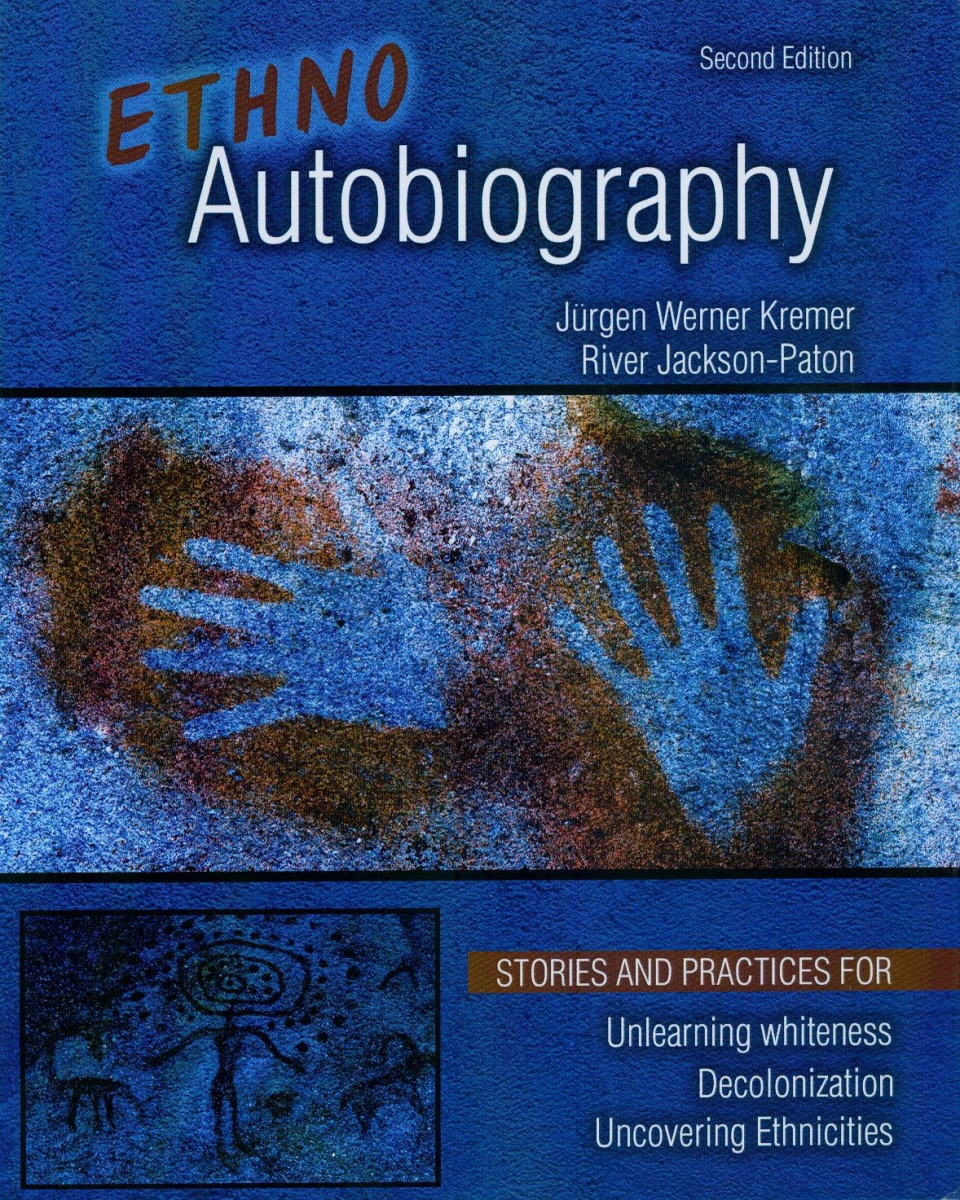
"Abnormal Psychology - Understanding the Complexities of Psychological Suffering". ISBN 97815249. Best price: Publisher website, https://he.kendallhunt.com (instant electronic delivery).
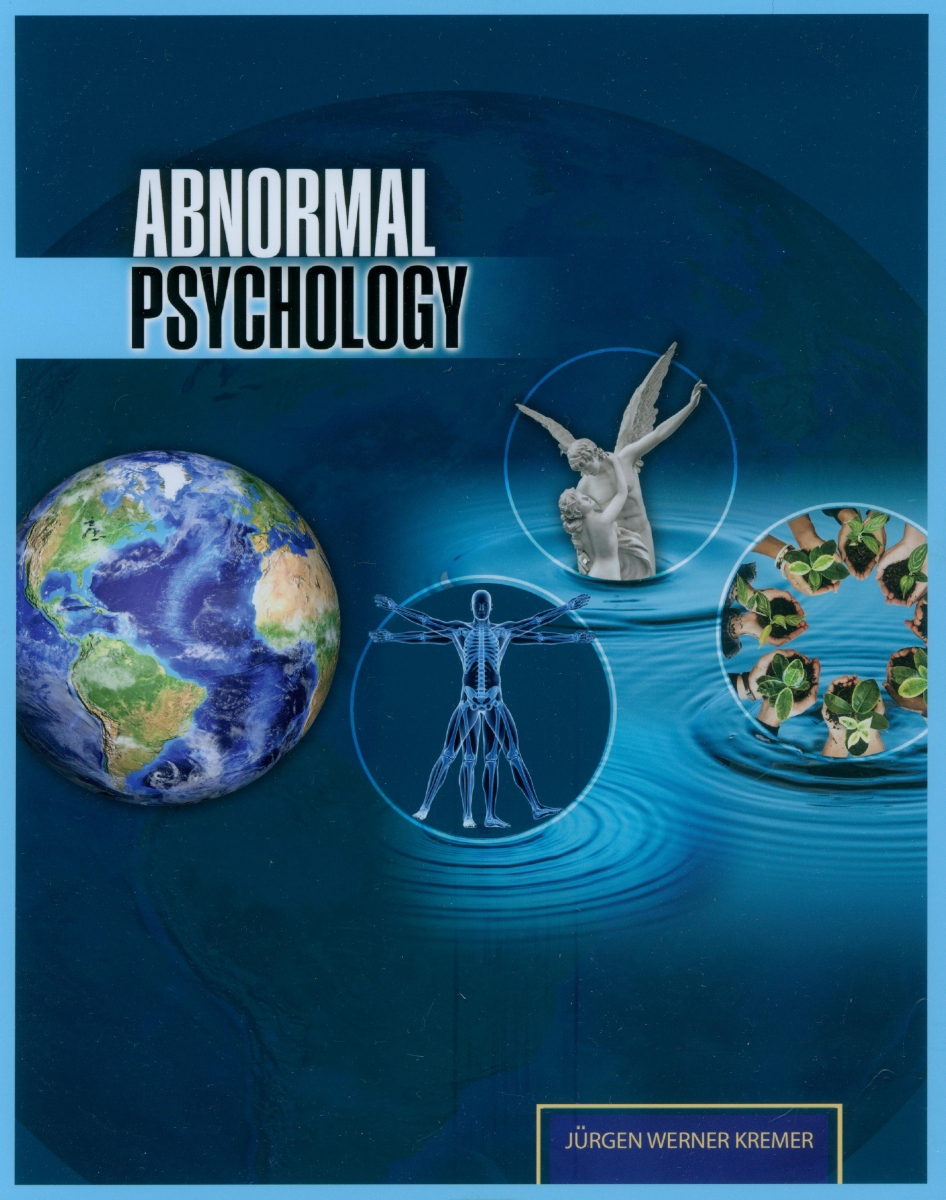
RECENT CONFERENCE PRESENTATIONS
Here are some of the conferences I have presented at in recent years:
• The Lowcountry Mental 2021 Health Conference (keynote). At the Shimmering Edges of the Self (with Bayo Akomolafe)
• The conference on Problems of Health Preservation in Northern and Siberian Conditions at the Russian Academy of Sciences (2009) with a presentation on Shamanic Healing, Psychotherapy, and the Affirmation of Indigenous Approaches to Healing and Shamanic Healing, Psychotherapy, and a Multi-Sense Perspective on Hypnotic-like Procedures in Moscow.
• The 10th International Society for Shamanistic Research conference in Warsaw (2011) with a presentation on Norval Morrisseau – Shaman Artist.
• The 9. Humanswissenschaftliches Kolloquium "Resonanztheoretische Modellvorstellung in der Medizin und Psychologie" in Vienna with a presentation on Resonanzen im Gehirn - Resonanzen im Ritual (Brain resonances - ritual resonances) (2016).
• Keynote at leadership conference in Vienna: Transformative leadership and healing in the 21st century (2016).
• The Symposium "Drugs and Varieties of Addiction in the 21st Century" in Vienna with a presentation on Addiction from the transpersonal stance (2017).
• The symposium "Shamanism and Public Health" at the Medical University Vienna with a presentation on Integration of shamanic approaches and Western medicine - The example of the Hmong project at the University of California, Merced (2017).
• The symposium on "Mind, Consciousness and Rituals" at the University of Budapest's Affektiv Pszichologia Tanszek with a presentation on Shamanic selves, neuropsychology, and the future of healing (2017).
• The 5th International Interdisciplinary Scientific & Practical Symposim "Medical Anthropology in an Unstable Globalizing World" in Moscow with a presentation on Dine Chantways - Multisensory Design and Right Brain Integration (2017).
• The Twenty-Fourth Annual Multicultural Education Conference at Sacramento State University with a presentation on Ethno-autobiography as Approach to Build Solidarity in the Classroom (2018).
• The Indigenous Wisdom & Shamanism Conference at Sonoma State University (The HUB & Society for the Study of Shamanism) with a presentation on Ethnoautobiography, the Meeting of Traditions, and Authenticity (2018).
• In addition, I have presented regularly at the International Conference for Indigenous and Ancestral Wisdom, Healing and Transformation.
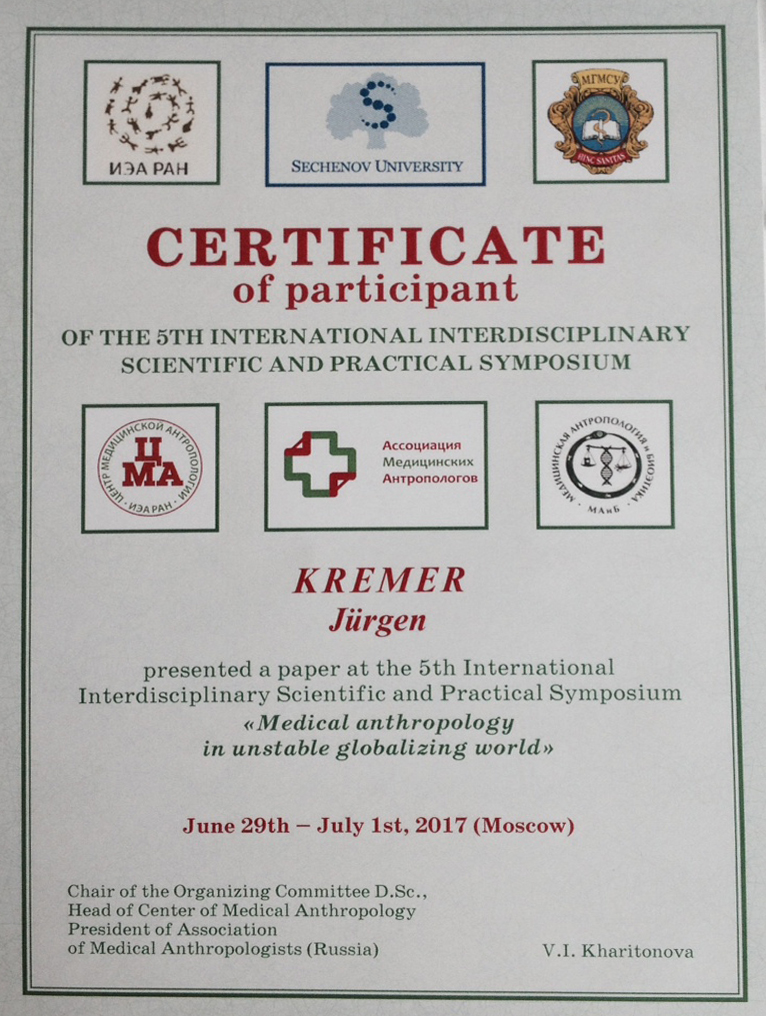
PUBLICATIONS (since 2000)
(2021) Coming-to-Presence at My Place of Hope. ReVision, 33/34(3&4).
(2019) Abnormal Psychology. Dubuque, IA: Kendall Hunt.
(2018a) Ethnoautobiography (2nd edition). Dubuque, IA: Kendall Hunt. (With R Jackson-Paton).
(2018b) Kultur ist űberall – Culture Is Everywhere. In D. Eigner, J. Kremer, & G. Fleck (eds.), Cultural and Medical Traditions. Vienna, Austria: Buchreihe des Arbeitskreises fur Medical Anthropology der Wissenschaftskommission im BMLVS.
(2018c) Spirit dances of the Pacific Northwest – Indigenous and Western approaches to depression. In D. Eigner, J. Kremer, & G. Fleck (eds.), Cultural and Medical Traditions. Vienna, Austria: Buchreihe des Arbeitskreises fur Medical Anthropology der Wissenschaftskommission im BMLVS.
(2017a) Diversity in Psychology – Psychology in Diversity. Dubuque, IA: Kendall Hunt.
(2017b) Weltbild und Kultur in der Medical Anthroplogy / World View and Culture in Medical Anthroplogy. In D. Eigner, J. Kremer (eds.), Culture, Consciousness, and Healing Vol. 1 (pp. 5-30). Vienna, Austria: Buchreihe des Arbeitskreises fur Medical Anthropology der Wissenschaftskommission im BMLVS.
(2017c) Trickster of True Selves in Trans/Personal and Shamanic Knowing. In D. Eigner, J. Kremer (eds.), Culture, Consciousness, and Healing Vol. 1 (pp. 91-116). Vienna, Austria: Buchreihe des Arbeitskreises fur Medical Anthropology der Wissenschaftskommission im BMLVS.
(2017d) Indianerrituale – Autoethnographische Reflexionen auf den Serpentinen zwischen den Welten (Native American ceremonies – Autoethnographic reflections on the serpentines between the worlds). In D. Eigner, J. Kremer, (eds.), Culture, Consciousness, and Healing Vol. 1 (pp. 211-252). Vienna, Austria: Buchreihe des Arbeitskreises fur Medical Anthropology der Wissenschaftskommission im BMLVS.
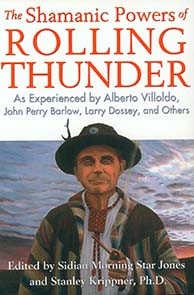
(2016a) Walking in two worlds. In Morning Star Jones, S., & Krippner, S. (Eds.) (2016), The shamanic powers of Rolling Thunder (pp.162-171). Rochester, VT: Bear & Co.
(2016b) Healing from creation. In Morning Star Jones, S., & Krippner, S. (Eds.) (2016), The shamanic powers of Rolling Thunder (pp. 172-183). Rochester, VT: Bear & Co.
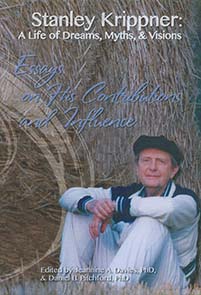
(2015a). Explorer of liminal phenomena (Essay in honor of Stanley Krippner). In J. A. Davies, & D. B. Pitchford, Stanley Krippner: A life of dreams, myths, & visions (pp. 41-61). Colorado Springs, CO: University Professors Press.
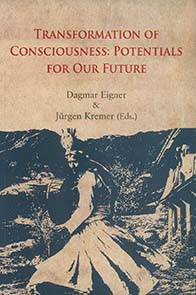
(2015b) Foreword: Transformations of consciousness and the ecology of mind. In D. Eigner & J. W. Kremer, Transformations of consciousness: Potentials for our future (pp. 1-12). Kathmandu, Nepal: Vajra Books.
(2015c) Multi-Sense Perspectives on Shamanic Rituals. In D. Eigner & J. W. Kremer, Transformations of consciousness: Potentials for our future (pp. 13-46). Kathmandu, Nepal: Vajra Books.
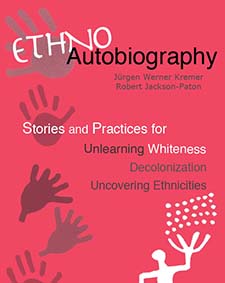
(2014a) Ethnoautobiography. Sebastopol, CA: ReVision Publishing. (With R Jackson-Paton).
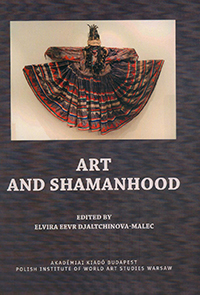
(2014b) Norval Morrisseau – Shaman Artist. In: E. E. Djaltchinova-Malec (Ed.), Art and Shamanhood (pp. pp. 279-290). Budapest: Akademiai Kiado.
(2012a) Postmodern Trickster Strands in Shamanic Worlds. International Journal of Transpersonal Studies, 31(2), 63-71.
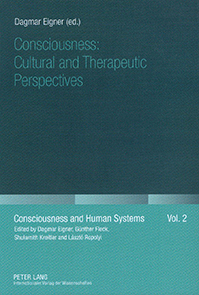
(2012b) (Post)Modern Brain – Shaman’s Brain. Evolutionary Perspectives on Shamanic Processes and Potentials. In D. Eigner, Consciousness: Cultural and Therapeutic Perspectives (pp. 47-76). Vienna, Austria: Peter Lang
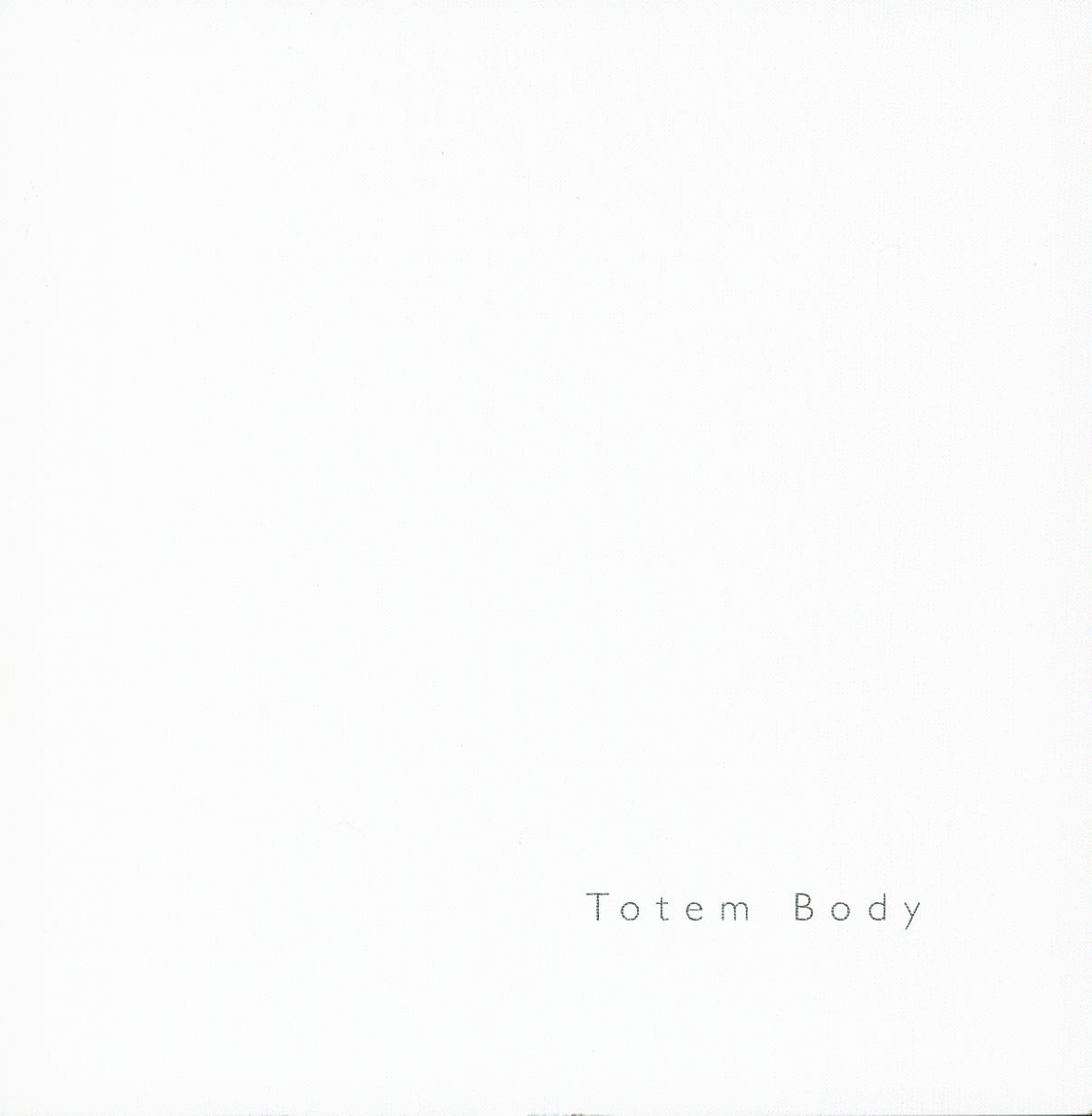
(2011) Totem Body and the Recovery of Indigenous Mind. In B. Cottrell, Totem Body (pp. 5-6). Normanby by Spital, Lincolnshire, Great Britain: Protoangel.
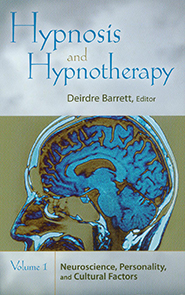
(2010) Hypnotic-like procedures in indigenous shamanism and mediumship. (with S. Krippner). In D. Barrett (Ed.), Hypnosis and hypnotherapy: Vol. 1: Neuroscience, personality, and cultural factors (pp. 97-124). Santa Barbara, CA: Praeger.
(2009a) Northern light ancestors. ReVision, 30(1&2), 32-43.
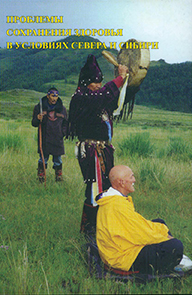
(2009b) Shamanic Healing, Psychotherapy, and the Affirmation of Indigenous Approaches to Healing. In V. I. Kharitonova (Ed.), Problems of health preservation in Northern and Siberian conditions (pp. 360-384). Moscow: Russian Academy of Sciences, Institute of Ethnology and Anthropology and Russian Academy of Medical Sciences, Siberian Branch. (Published in Russian)
(2009c) Shamanic Healing, Psychotherapy, and a Multi-Sense Perspective on Hypnotic-like Procedures. Moscow: Russian Academy of Sciences, Institute of Ethnology and Anthropology and Russian Academy of Medical Sciences, Siberian Branch. (Published in Russian)
(2009d) Angels Fear and the understanding of aesthetic rationality. Continuing the Conversation, Winter 1987, Number 11, 6-7. Reprint available at www.pctresources.com and www.asc-cybernetics.org.
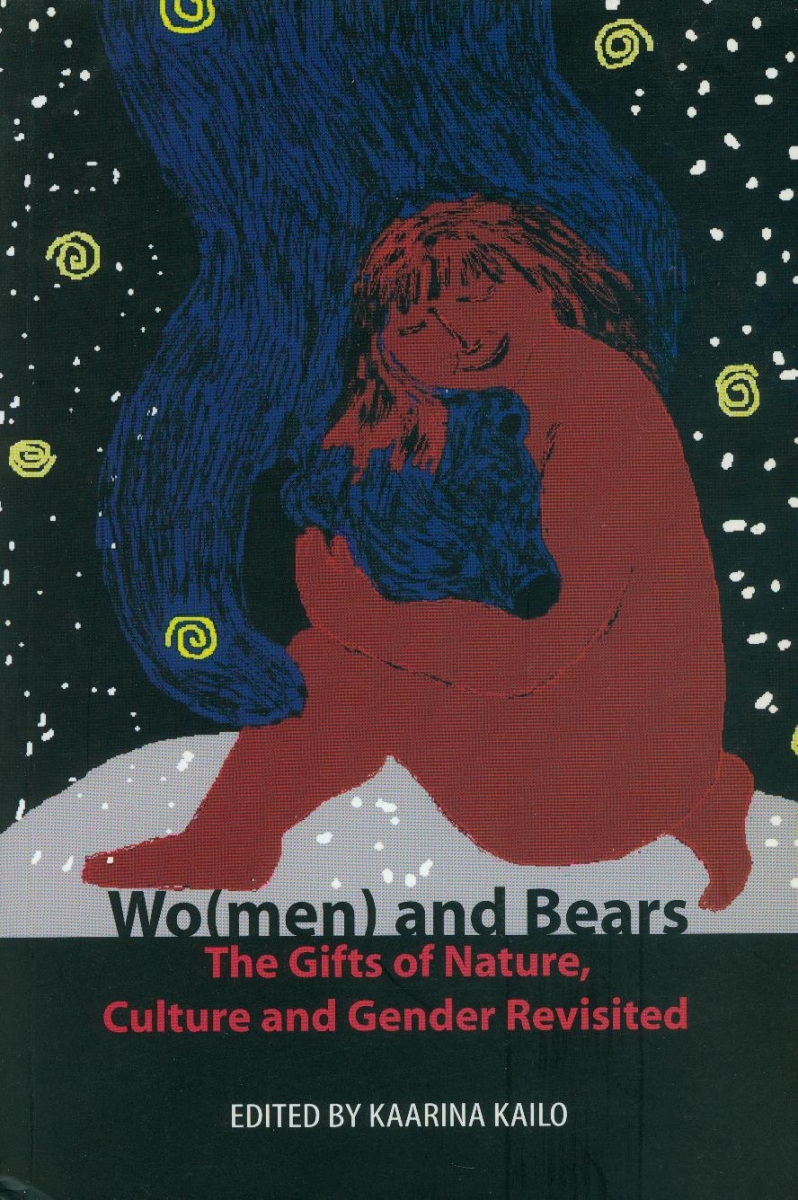
(2008a). Bearing Obligations. In K. Kailo, Women and Bears: The Gifts of Nature, Culture and Gender Revisited (pp. 219-272). Toronto: Inanna.
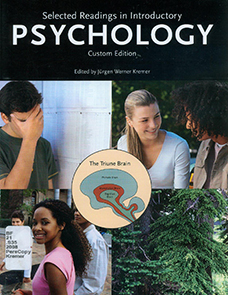
(2008b) Selected readings in introductory psychology (editor). Boston: Pearson Custom.
(2008c) Hypnotic-like procedures in indigenous shamanism and mediumship. (with S. Krippner). In J. W. Kremer, Selected readings in introductory psychology (pp. 41-60). NY: Pearson. [Preprint of (2010)]
(2008d) Healing the impact of colonization, genocide, and racism on Indigenous populations. In: J. W. Kremer, Selected readings in introductory psychology (pp. 89-96). NY: Pearson. (With B. Bastien, R. Kuokkanen & P. Vickers). Expanded version of (2003a).
(2007a) Ironies of true selves in trans/personal knowing (Part II). ReVision, 29(4), 23-33.
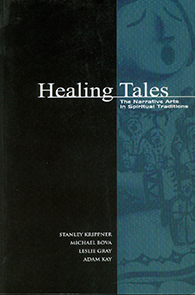
(2007b) Euro-Americans: Retribalize! In S. Krippner, M. Bova, L. Gray, & A. Kay, Healing tales (pp. 255-262). Charlottesville, VA: Puente.
(2006a). Dreams and Visions in Initiation and Healing. ReVision, 29(1), 34-45.
(2006b) Freyja – The Great Shaman Spirit of the North. In: Proceedings of the 24th International Conference on the Study of Shamanism and Alternate Modes of Healing . Berkeley: Independent Scholars of Asia.
(2005) Tricksters of the Trans/Personal – Mythic Explorations of Constructions of Self. ReVision,27(3), 34-43.
(2004a) Identity and Peace - Hiroshima Bugi as Trickster of Personal And Transpersonal Perspectives [Review of Gerald Vizenor’s novel Hiroshima Bugi.] ReVision, 26(2) (pp. 2-4).
(2004b) Ethnoautobiography as Practice of Radical Presence - Storying the Self in Participatory Visions. ReVision, 26(2), 5-13. Republished in an expanded version in (2008c).
(2004c) Icons and Idolatry - A Conversation with Aftab Omer. ReVision, 26(2) (pp. 37-40).
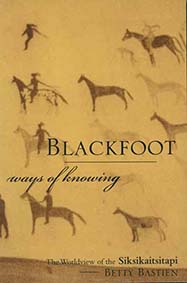
(2004d) Editor of: Blackfoot Ways of Knowing - The worldview of the Siksikaitsitapi, by Betty Bastien. Calgary: University of Calgary Press.
(2004e) Remembering ancestral conversations. Afterword in Betty Bastien, Blackfoot Ways of Knowing - The worldview of the Siksikaitsitapi (pp. 184-193). Calgary: University of Calgary Press.
(2004f) Glossaries Siksikaitsipowahsin – English & English – Siksikaitsipowahsin. (Duane Mistaken Chief with Jürgen W. Kremer). In Betty Bastien, Blackfoot Ways of Knowing - The worldview of the Siksikaitsitapi (pp. 194-230). Calgary: University of Calgary Press.
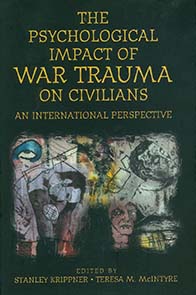
(2003a) Healing the impact of colonization, genocide, and racism on Indigenous populations. In: S. Krippner & T. M. McIntyre, The psychological impact of war trauma on civilians – an international perspective (pp. 25-37). NY: Praeger. (With B. Bastien, R. Kuokkanen & P. Vickers)
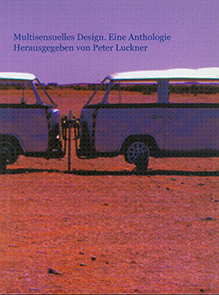
(2003b) Trance als multisensuelle Kreativitätstechnik. In: P. Luckner, Multisensuelles Design. Eine Anthologie (pp. 591-620). Halle, Germany: University Press of Burg Giebichenstein – Hochschule für Kunst und Design.
(2003c) Entfremdungsgeschichte der Sinne - Zur kulturellen Genese normativer Anosmie und visueller Dominanz in modernen Persönlichkeitsstrukturen [History of sense alienation – The cultural genesis of normative anosmia and visual dominance in modern personality structures]. In: P. Luckner, Multisensuelles Design. Eine Anthologie (pp. 37-52). Halle, Germany: University Press of Burg Giebichenstein – Hochschule für Kunst und Design.
(2003d) Sinnesgeschichte in interkultureller und etymologischer Sicht [History of the senses – Crosscultural and etymological perspectives.] . In: P. Luckner, Multisensuelles Design. Eine Anthologie (pp. 53-66). Halle, Germany: University Press of Burg Giebichenstein – Hochschule für Kunst und Design.
(2003e) The spirit of integration – Mythic androgyns and the significance of shamanic trance. ReVision, 26(1), 40-48. (With R. Beyman)
(2002) Radical presence. ReVision, 24(3), 11-20.
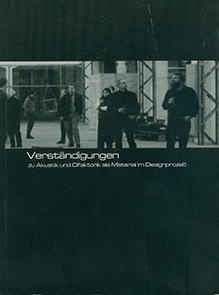
(2001a) Zur Geschichte der Entfremdung der Sinne -- Die Olfaktorik und andere Sinne in historischer und interkultureller Sicht [Toward a history of the alienation of the senses -- the olfactory and other senses in historical and intercultural perspective]. In: Verständigungen zu Akustik und Olfaktorik als Material im Designprozeß [Clarifications about acoustics and olfaction as material in the design process], 68-87. Halle: University Press of Burg Giebichenstein-Hochschule für Kunst und Design Halle.
(2001b) Androgyns in Norse mythology. In: Proceedings of the 18th International Conference on the Study of Shamanism and Alternate Modes of Healing. Berkeley: Independent Scholars of Asia, pp. 188-212. (With R. Beyman)
(2001c) Coming to presence. In: Proceedings of the 18th International Conference on the Study of Shamanism and Alternate Modes of Healing . Berkeley: Independent Scholars of Asia, pp. 233-241. (With Rebecca Beyman, Linda Sartor, Jacqueline Whitmore, and Annie Wildwood).
(2000a) The cosmology of healing in vanir Norse mythology. In: H. Kalweit & S. Krippner (eds.), Yearbook of Cross-Cultural Medicine and Psychotherapy 1997, 127-176. Mainz, Germany: Verlag fur Wissenschaft und Bildung. (With Valgerður H. Bjarnadóttir)
(2000b) Shamanic initiations and their loss -- decolonization as initiation and healing. Ethnopsychologische Mitteilungen, 9(1/2), 109-148.
(2000c) Sámit, Vanir and Giants. In: Proceedings of the 17th International Conference on the Study of Shamanism and Alternate Modes of Healing. Berkely, CA: Independent Scholars of Asia, pp. 66-97.
(2000d) Mjandasj-pyrre and Mjandasj Woman -- Translation of Kola Saami stories (from German). Baiki - The North American Sami Journal, #22, pp. 14-16.
(2000e) The Maya shape of time. Interview with Maya priest and Daykeeper OmeAkaEhekatl. ReVision23(2), 24-37.
(2000f) Hopi prophecies: The way of balance is an individual responsibility. Interview with Hopi Elder Martin Gaswesheoma and Emery Holmes. ReVision23(2), 10-18.
(2000g) Foreword to Prophecy and Historical Responsibility (with M. Gomes). ReVision 23(2), 2.
(2000h) Millennial twins: An essay into time and place. ReVision22(3), 29-42. Republished in (2008c).
(2000i) The wisdom of Uncertainty: Living with the Shambhala prophecy. Interview with Joanna Macy (with Mary E. Gomes). ReVision,23(2), 19-23.
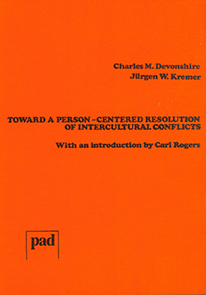
ART and ART EXHIBITIONS
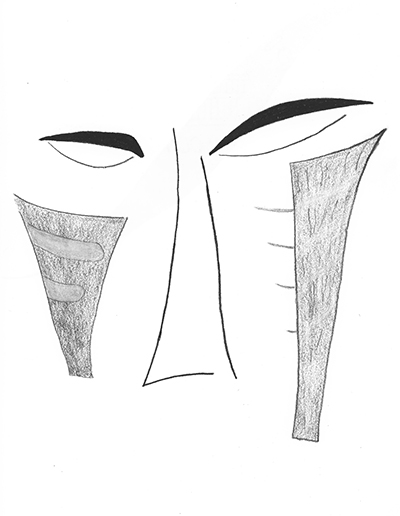
(2016) Drawings in Morning Star Jones, S., & Krippner, S. (Eds.) (2016), The shamanic powers of Rolling Thunder. Rochester, VT: Bear & Co. (Pp. xii, 19, 39, 65, 103, 145, 184).

(2012) The Doyle Collection. Ancestral Sun Dancer, Guardians 1 & 2 on view in the permanent collection. See for details on Ancestral Sun Dancer.
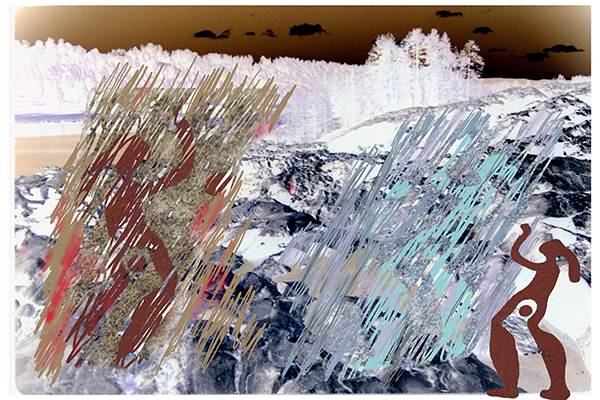
(2011a) Totem Body (2 prints, 3 sculptures, 9 paintings). Group show in The Crypt Gallery at St. Pancras Church, London. 10 – 26 June 2011.
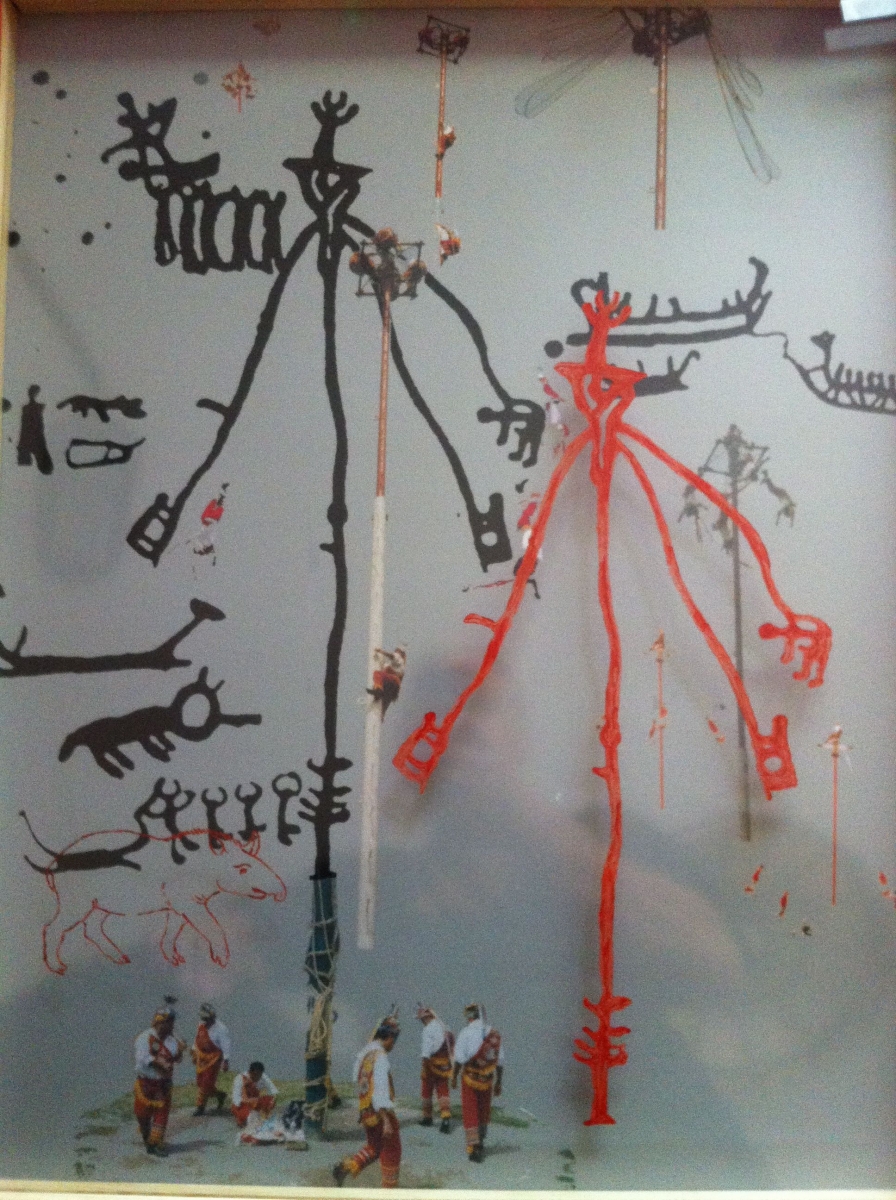
(2011b) Transformations – Scandinavian Rock Art Then & Now (2 prints, 21 photos, 6 sculptures & assemblages, 11 paintings). Santa Rosa Junior College Museum, Santa Rosa, CA. September 22 – December, 16, 2011.
